Current Projects
Country: Tajikistan
Showing 1 - 9 of 9
9 results found
To enhance national-level institutional and technical capacities for the 2021-2022 UNCCD reporting process in the context of the UNCCD Strategic Framework 2018-2030 and SDG15.3
To assist GEF-Eligible Parties to the Cartagena Protocol on Biosafety to prepare and submit their Fourth National Reports on measures that each Party has taken to implement the Cartagena Protocol on Biosafety
To enable country Parties to collect necessary biophysical, socioeconomic data, establish sound reporting and monitoring systems at national level and report against the UNCCD Strategy
To Assist GEF-Eligible Parties to the Nagoya Protocol on Access and Benefit Sharing to prepare and make timely submission of their Interim National Reports on measures that each party has taken to implement the Protocol in line with Article 29
National and regional capacity for the Environmentally Sound Management (ESM) of hazardous waste including DDT and other POPs in place in both countries in line with the requirements of the Basel and Stockholm Conventions.
To Assist GEF-Eligible Parties to the Cartagena Protocol on Biosafety to prepare and make timely submission of their Third National Reports on measures that each party has taken to implement the Protocol in line with Article 33
With the overarching goal of integrating CBD Obligations into National Planning Processes through Enabling Activities, the main objective of this project is to enable Mongolia to revise its National Biodiversity Strategies and Action Plans (NBSAPs) and to develop the Fifth National Report to the CBD
To assist the Republic of Tajikistan to implement its National Biosafety Framework (NBF) in order to comply with the Cartagena Protocol
The project’s primary goal is to carry out in-depth surveys of HCFC consumption and, where applicable, production in Article 2 countries with economies in transition (CEITs) in Europe and Central Asia (specifically Azerbaijan, Belarus, Bulgaria, Kazakhstan, the Russian Federation, Tajikistan, Uzbekistan and the Ukraine), and identify needs for further activities to assist these countries to remain in compliance with their Montreal Protocol obligations.
Showing 1 - 9 of 9




